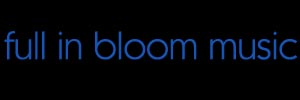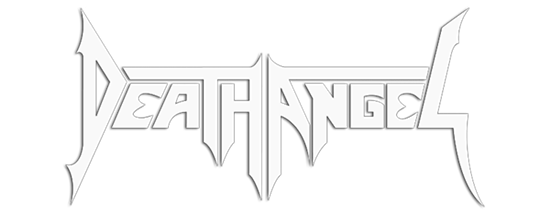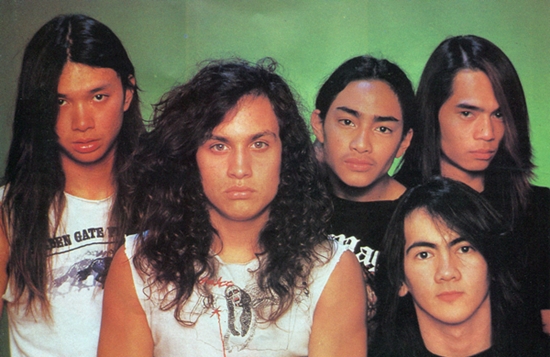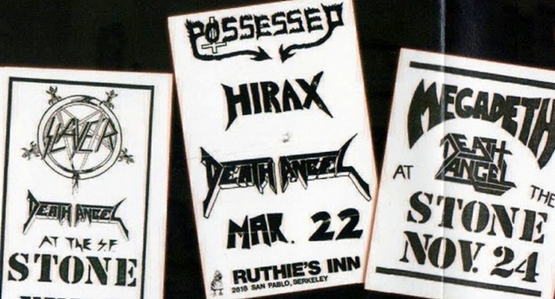With the collective curiosity of die-hard thrash fans piqued, about what would come next for these up-and-coming teenage thrash maniacs, Death Angel went back into the studio in March 1988 to begin working on their sophomore effort. Titled Frolic Through the Park, the album hit stores in July 1988 and achieved far greater commercial success than their debut. The album charted in Belgium, Germany, Hungary and the Netherlands, and earned the band their first chart berth in the US, peaking at No. 143 on the Billboard 200 albums chart. Death Angels' second full-length was decidedly more diverse than their debut, featuring a cover of the KISS classic "Cold Gin" and the toned-down single "Bored", written as a single to expand the band's audience beyond die-hard thrash fans. A video was produced for the single, and received heavy airplay on MTV. The network also invited the young thrash band to appear as a studio guest on its "Headbangers Ball" show, giving the band immense exposure considering the show was really the only venue anywhere at the time where fans of heavy metal and thrash could get their metal fix. "Bored" was also used for the soundtrack of the 1990 film Leatherface: The Texas Chainsaw Massacre III, giving the band a second push in sales of Frolic. The band launched an extensive world tour to support of the album, performing for the first time in Europe and Japan. Their first tour of Japan was so successful that the band booked a second tour of the island nation, selling out every stop on both treks.
While they were still on tour supporting their second album, Death Angel landed their first major label deal when Geffen bought out their contract from Enigma. After taking just a few weeks to unwind from their longest tour yet, the band hit the studio again in September 1989 to begin working on a third album. With acclaimed producer Max Norman (Ozzy Osbourne, Y&T) at the helm, Death Angel took just under two months to lay down what some critics would call their most complete effort. Appropriately titled Act III, the album hit stores on April 10, 1990. While the set failed to chart in the US, it did land on charts in Switzerland, Belgium, France, Hungary and the Netherlands. A pair of singles were released: "Seemingly Endless Time" and "A Room with a View," each with videos that got a fair amount of attention from the execs at MTV. Unfortunately, Act III would be Death Angel's last album on a major label as tragedy was about to strike and tear the band apart.
Video for "A Room with a View"
|
|
|
|
|
With their videos playing regularly on MTV's "Headbangers Ball", Death Angel kicked off their most ambitious tour yet with shows at San Francisco's Warfield and The Ritz in New York City. The band also sold out a show at London's renowned Hammersmith Odeon, and were scheduled to take part in the massive "Clash of the Titans" tour with Slayer, Megadeth and Anthrax. They would be replaced by Alice In Chains, however, as their world would come crashing down before the tour kicked off in May 1991. Death Angel's promising momentum came to a screeching halt in late 1990 when, on the road headed for a gig in Las Vegas, the band's tour bus crashed, leaving a 17-year old Andy Galeon in critical condition. The drummer would take over a year to fully recover, and the band would break up before he was able to perform again. After a handful of shows in Japan with a different drummer, the decision was made to put the band on hiatus until its youngest member was ready to return. This decision was not received positively by Geffen, who dropped the band. Osegueda decided it was time to call it quits and left the band, relocating to New York to pursue interests outside of music. The remaining three members performed a handful of intimate acoustic shows in San Francisco under the name The Past, then took a break while their young cousin recovered.
When Galeon was ready to make his return, the remaining members of Death Angel began writing and performing under the moniker The Organization, with Cavestany taking over for Osegueda on vocals. The quartet would go on to release a pair of albums (The Organization in '93 and Savor the Flavor in '95), but the albums failed to strike a chord with fans despite a pair of Dynamo Open Air Festival appearances and an opening slot on Judas Priest frontman Rob Halford's Fight tour. The Organization called it quits in 1996, and Death Angel's original members spent the next few years on various side projects. Osegueda made his return to music in 1998, reuniting with Cavestany and Galeon to form Swarm. The band was unable to sell many copies of its self-titled debut, but did bring the cousins back together and started the healing that would lead to a reunion. The band officially reunited in August 2001, performing at the Thrash of the Titans concert, an event put together to help legendary Testament frontman Chuck Billy pay for his medical expenses after he was diagnosed with cancer. Initially intended as a one-off get-together, the performance went over so well that the band decided to reunite on a more permanent basis. Unfortunately, Gus Pepa was unable to take part and was replaced on rhythm guitar by longtime fan and friend of the band Ted Aguilar.
|
Death Angel spent the first few years of the new millennium writing and performing occasional gigs, including a number of major festivals. Fan reception was remarkably positive, especially given the band hadn't released any new material since 1990. The gap would end up being 14 years as they released their fourth album on May 4, 2004. Titled, The Art of Dying, the album dropped on Nuclear Blast Records to a mostly positive reception from critics. Sales were disappointing, however, as the album failed to chart in any major markets, although it did peak at No. 50 on Billboard's Top Independent Albums chart. A single, "Thrown to the Wolves," was released, but only got airplay on heavy metal stations and a video was not produced, so it failed to draw in new fans. The following year, Death Angel released a boxed set that included remastered versions of their first two albums, a Rarities CD and a DVD. In September 2007, the band accepted an invitation from Dave Grohl (Nirvana, Foo Fighters) to record at his Studio 606 in Northridge, California.
Death Angel's fifth album, Killing Season, was released on February 26, 2008. The album charted in Germany and the Netherlands, while also reaching position 21 on Billboard's Heatseekers chart, but sales were not much better than they were with The Art of Dying. A video was produced for the track "Dethroned", but didn't garner much airplay. At the time, Cavestany and Osegueda were splitting time between Death Angel and side projects. The band continued to perform sporadically, until October 2008, when Dennis Pepa announced he was leaving the band. The band filled the vacant bass position with Sammy Diosdado, who was part of Osegueda's side band the All Time Highs. Galeon was the next member to leave, in May 2009, leaving Cavestany as the only original founding member. The band continued to tour, with Vicious Rumors drummer Will Carroll replacing Galeon, and writing material for their next effort. Carroll would remain with the band for the recording, but Diosdado was replaced by Damien Sisson.
Death Angel dropped album number 6, Relentless Distribution, on September 14, 2010. Sales were better than either of the previous two efforts, and the set charted in Belgium, Switzerland, France, Germany and Hungary, where it topped out at No. 9. The album also earned a Top 10 berth on Billboard's Heatseekers chart and a Top 50 spot on its Independent Albums Chart. A video was released for the single "Truce", and was played pretty regularly on MTV. The band went back to touring until April 2013, when they returned to the studio to lay down their seventh album. Titled The Dream Calls for Blood, the album was released October 11, 2013 and earned the band their highest US chart position ever. Peaking at No. 72 on the Billboard 200, the effort also charted in Belgium, France and Germany. Unfortunately, times had really changed and a Top 100 berth on the Billboard 200 didn't necessarily translate to big sales as the album moved just 5,400 copies in the US in its first week. Undeterred, the band went back to touring, while also writing material for a follow-up. Ted Aguilar revealed in March 2014 that the band was still in the writing process.
While the Death Angel story is not complete, their place in thrash history is undeniable. Not only is their story a true inspiration to aspiring teenage musicians, given their extraordinarily young start in the business, their first three albums are considered thrash classics, and have influenced a generation of extreme metal artists. Death Angel is cited as a major influence by some of the biggest thrash and extreme metal acts that have surfaced over the last 20 years, including Cannibal Corpse, Machine Head and Five Finger Death Punch. |
|
|







